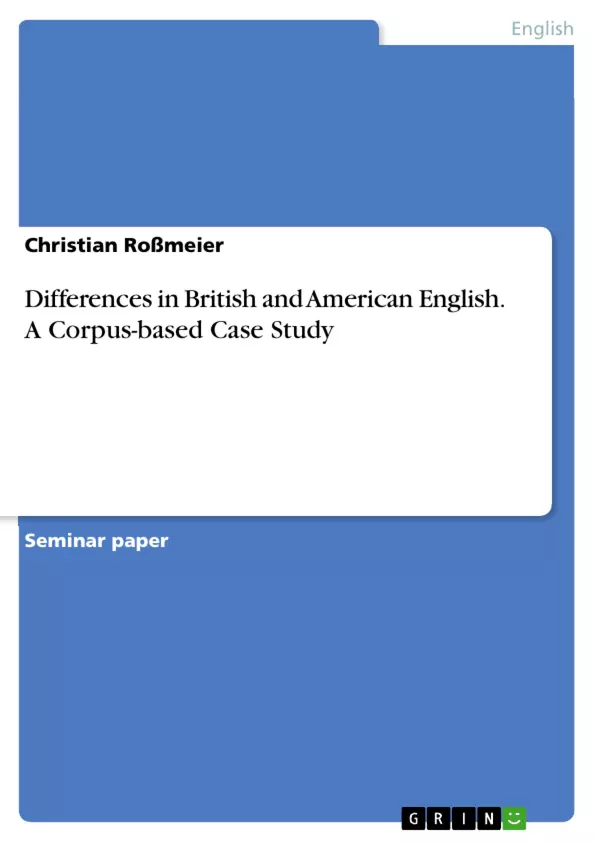Considering the "inevitability of change", Ferdinand de Saussure once stated: "Time changes all things: there is no reason why language should escape this universal law".
In reference to the English language, Trask noted: "English […] has been changing throughout its history and is still changing today". In doing so, there is a great number of factors playing an important role for ongoing changes in a language such as sociolinguistic causes of chance which are illustrated in Aitchison in a very coherent and detailed way.
"Geographical separation" will be the central keyword, as I will investigate differences and varieties in British and American English use of language. Surprisingly, in comparing Australia and New Zealand, where "equally big differences in language [...] from their mother country" could be expected, it turns out that this is not the case. Although differences in slang expressions can be recognized, spelling and word usage, actually, are alike the original British form so that these differences seem trivial in contrast to the variety of English used in the United States.
Therefore, I have decided to focus my attention on specific distinctive attributes of the American variety of English and, based on foregoing research in this field, to create a questionnaire whereby central hypotheses are to be checked and verified, at best.
Hence, this paper comprises a brief summary of previous knowledge on this matter, so to speak the theoretical background of my work.
Moreover, not only regional factors play a role but also the interviewee's social background when it comes to certain features of language such as word use. Thus, it is highly exciting to see what assessments will be done in the course of this paper.
Inhaltsverzeichnis (Table of Contents)
- Introduction
- Main Body
- Theoretical background
- Data and methods
- Results
- Discussion
- Conclusion
- Works cited
- Appendix
Zielsetzung und Themenschwerpunkte (Objectives and Key Themes)
This paper aims to investigate differences between British and American English, focusing on specific features of language use. The main objective is to examine the frequency and prevalence of certain linguistic features in both varieties of English and analyze their potential social and regional determinants.
- The influence of geographical separation on language variation
- The role of sociolinguistic factors in shaping language use
- The frequency of specific grammatical features in British and American English
- The impact of historical language change on contemporary differences
- The analysis of data from corpora and questionnaires to support findings
Zusammenfassung der Kapitel (Chapter Summaries)
The introduction provides context by highlighting the inevitability of language change and focusing on the specific area of British and American English differences. The theoretical background chapter then delves into the use of corpora, outlining key research questions and highlighting several key features of interest, including grammatical reduction, emphatic negatives, and do-support.
Schlüsselwörter (Keywords)
The key focus topics of this work include British and American English, linguistic variation, corpus linguistics, grammatical change, frequency analysis, and sociolinguistic factors.
Frequently Asked Questions
What is the focus of this linguistic study?
The paper investigates the distinctive differences between British and American English based on corpus data and sociolinguistic research.
Why does American English differ more from British English than Australian English does?
Despite geographical separation, Australian English often retains British spelling and word usage, whereas American English has developed a vast number of unique varieties and attributes.
What linguistic features are specifically analyzed?
The study focuses on grammatical reduction, emphatic negatives, and the use of "do-support" in both varieties.
How does social background affect language use?
The research suggests that an individual's social background can play as significant a role as regional factors in determining word choice and grammar.
What role does "geographical separation" play in language change?
It is a central keyword in the study, illustrating how physical distance leads to independent linguistic developments over time, as noted by Ferdinand de Saussure.
- Arbeit zitieren
- Christian Roßmeier (Autor:in), 2011, Differences in British and American English. A Corpus-based Case Study, München, GRIN Verlag, https://www.grin.com/document/462625



